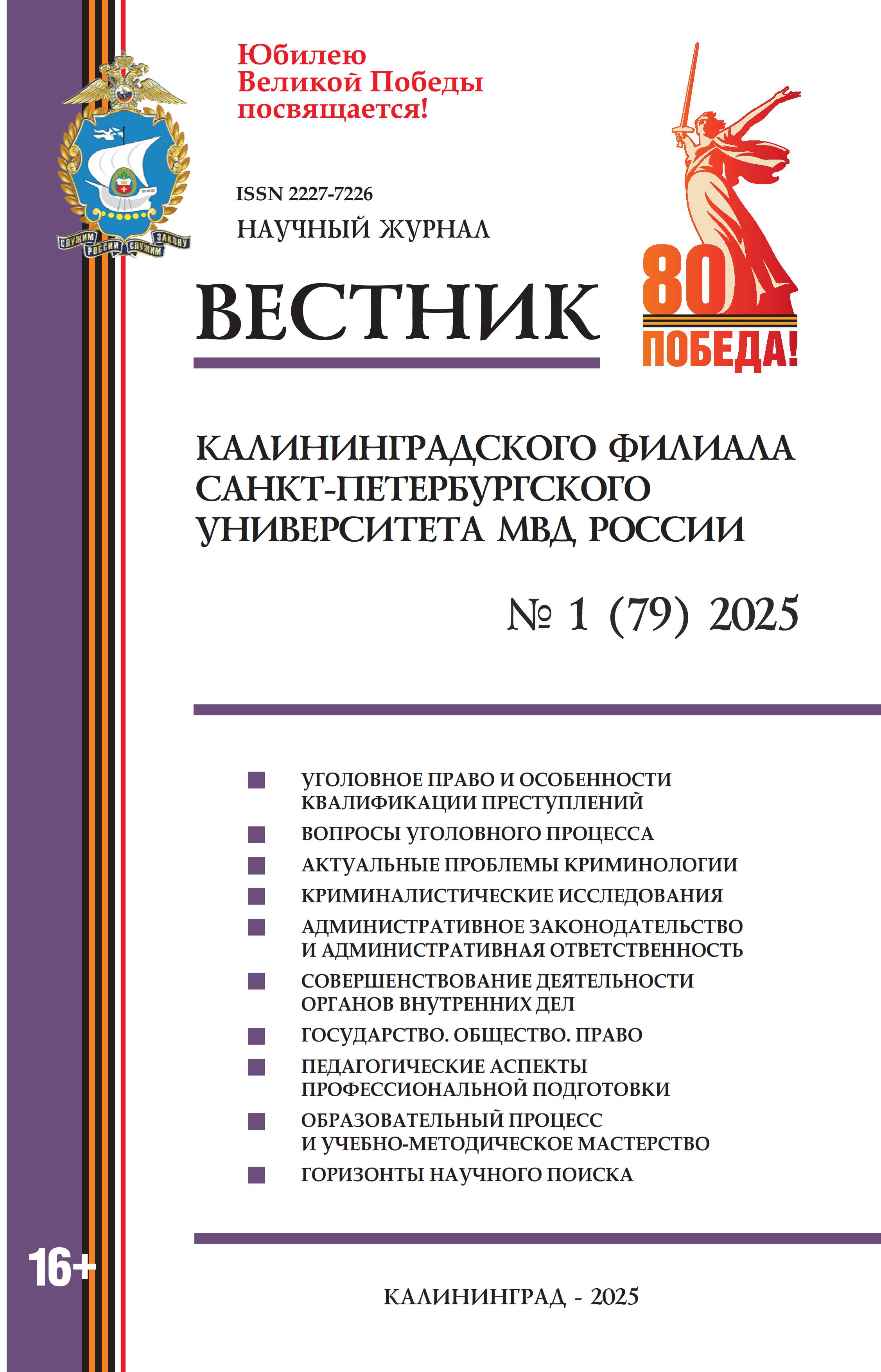employee
Russian Federation
Introduction. The article examines the specific features of the methodology for teaching solving logical problems at the University of the Ministry of the Interior of Russia from the standpoint of P.Ya. Galperin’s technology of stage-by-stage formation of mental actions. The relevance of the study conducted by the author is determined by the importance of logical thinking for the general culture and professional skills of an employee of the internal affairs bodies. Methods. The methodological basis of the study consists of: definitions of concepts and pedagogically significant provisions of P.Ya. Galperin’s general psychological concept; structural and functional analysis; general logical research methods. Results. The article structurally consists of three substantive parts. In the first, the author presents the adaptation of the conceptual provisions of the technology of stage-by-stage formation of mental actions to the problem of the methodology for teaching solving logical problems. Based on the triad «structure – dynamics – result», theses are proposed that reveal the main content of P.Ya. Galperin’s concept. The second part of the article describes a typical version of the application of the technology of stage-by-stage formation of mental actions in solving logical problems, and defines the features of implementing each stage. The third part reveals the specifics of implementing the technology of step-by-step formation of mental actions when solving logical problems on constructing and checking the correctness of a simple categorical syllogism. The author's methodological techniques recommended for solving problems of this type are described: «TRIS analysis» of premises, the «solution in three lines» technique. Based on the results of the study, a conclusion is made about the underestimation of the educational potential of the technology of step-by-step formation of mental actions by P.Ya. Galperin when teaching the discipline «Logic» at the University of the Ministry of the Interior of Russia.
Teaching methods, P.Ya. Galperin, mental actions, formation of mental actions, simple categorical syllogism, educational technology.







